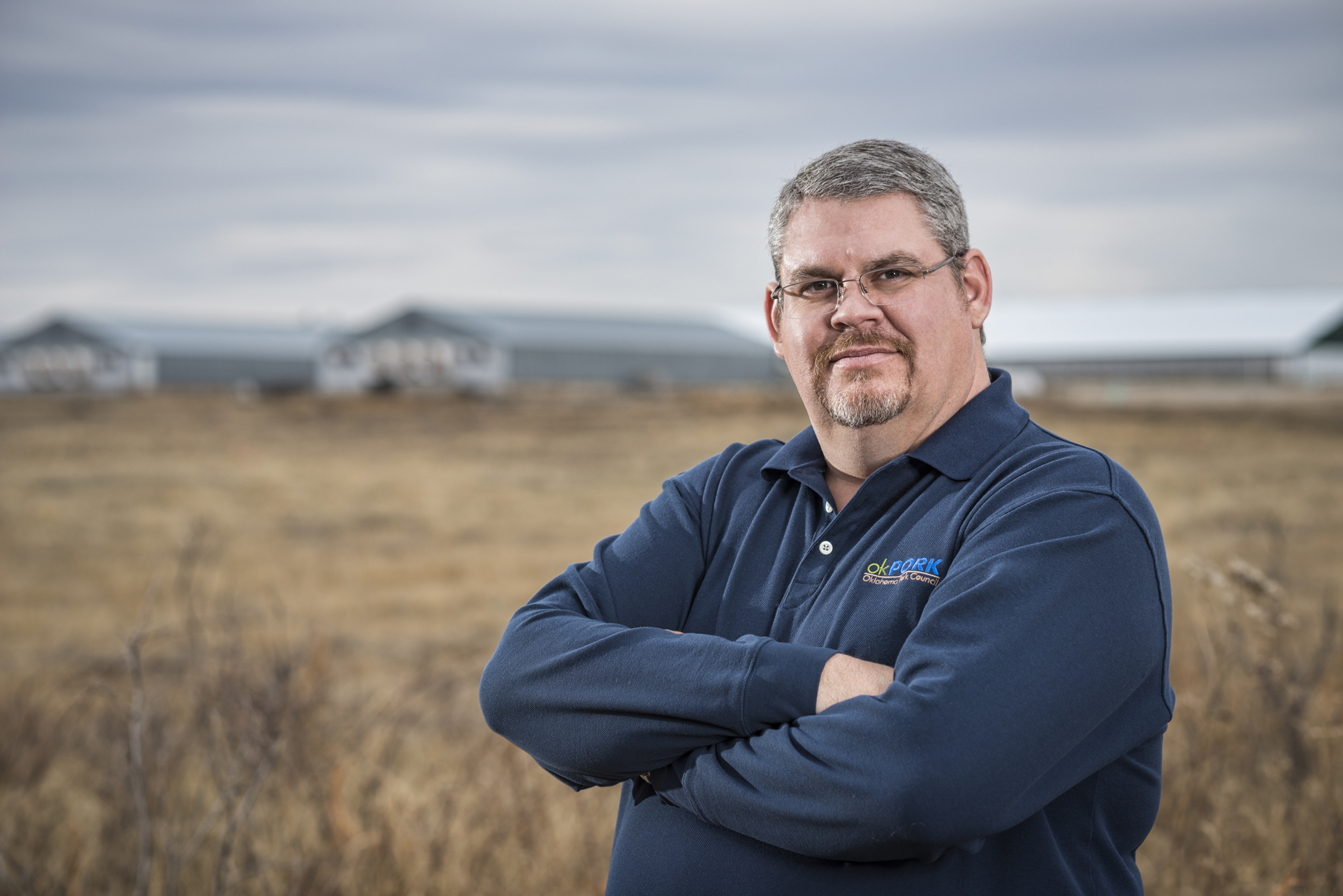
Agricultural News
Real Pork Strategy Campaign Launched To Help Consumers Understand Daily Challenges Faced By Pork Producers, Says okPORK's Roy Lee Lindsey
Wed, 02 Sep 2020 08:55:54 CDT
 Telling the real story of everyday pork production is the focus of a new national pork strategy and it couldn't come at a better time as the industry is struggling with the impact of COVID-19.
Telling the real story of everyday pork production is the focus of a new national pork strategy and it couldn't come at a better time as the industry is struggling with the impact of COVID-19.
Radio Oklahoma Agriculture Network Associate Farm Director and Editor KC Sheperd recently interviewed Roy Lee Lindsey, executive director of okPORK, Oklahoma Pork Council as Lindsey addressed the new strategy and how it is helping pork producers.
The National Pork Board launched a new master-brand strategy called Real Pork celebrating pork and the people who bring it to the table in late August.
This is not an advertising campaign but rather a "let's tell our story," Lindsey said.
Let's talk about the people who work on the farm every day, the care we give our animals and how we care for the natural resources, Lindsey said.
This Real Pork strategy takes our principles and incorporates them into everything we do, Lindsey said.
The big drive behind Real Pork is to connect consumers to information about where their bacon and pork chops come from, Lindsey said.
Real pork celebrates everything that's real about pork, he said.
It's going to be a part of everything the National Pork Board does and we're incorporating it into everything we do as well here in Oklahoma, he said.
The strategy will especially help consumers understand the challenges faced by pork producers struggling with the pandemic.
Lindsey said it is difficult to know what the future will bring, as he notes there is no "magic 8-ball" answer.
We've been fortunate here in Oklahoma, despite the slowdown at the plants in April and May, we've been running at or near capacity that's allowed us to catch up, Lindsey said.
But that's not the case across the country.
We're running about 95 percent of our capacity compared to last year and that's concerning as there are a tremendous number of hogs coming later this year and into 2021, he said.
We have learned producers are incredibly resilient and flexible as they changed diets on animals to make it possible to hold hogs longer, allowing us to avoid hogs getting too big, he said.
Economists still expect about a million head backlog out there and that number could grow into the fall, he said.
Lindsey said ff we were to see another COVID-19 shutdown it would put us back into that drastic situation we were in in the spring.
Now add African Swine Fever to the mix and the challenges become even more daunting for global production.
We're still seeing the spread of African Swine Fever around the globe, Lindsey said.
China may be taking 10 percent of our production this year, Lindsey said, despite the ongoing trade dispute.
We have plenty of pork at a reasonable price, he said.
All of this helps the pork industry learn and cope with challenges.
As we look around the globe what lessons did we learn from the coronavirus and how can we apply it to an outbreak of African Swine Fever, Lindsey said.
The COVID experience was a much better practical application of preparation terms than anything we had practiced, he said.
That's critical as Oklahoma depends on out-of-state movement of hogs.
We shipped 8.5 million pigs out of Oklahoma last year, about 6 percent of all U.S. pigs, Lindsey said.
We're dependent on moving hogs so we are constantly asking what we can do in the event of a foreign animal disease, can we still move pigs around. Lindsey said.
I can't pretend to put an economic value on what it would mean if a foreign animal disease hit, Lindsey said.
I think it's important to remember COVID is not an swine disease and AFS is not a human disease, Lindsey said.
The Oklahoma pork executive said his industry, like all of agriculture, could use government aid to handle the impact of the pandemic.
Additional funding for pork producers is definitely needed and we need to really thank Sen. Inhofe and his staff for working on the relief act, Lindsey said.
All of agriculture is hurting and we typically are not wanting government help, but this is a situation out of our control, and it has had a devastating impact on restaurants and institutions. That was a huge market for us, Lindsey said.
The markets hate uncertainty, and nobody knows what tomorrow will bring in terms of getting back to school or to work.
That's the real challenge for us long term, Lindsey said.
Click on the listen bar below to hear more of KC's interview with Roy Lee Lindsey.
WebReadyTM Powered by WireReady® NSI
Top Agricultural News
More Headlines...




